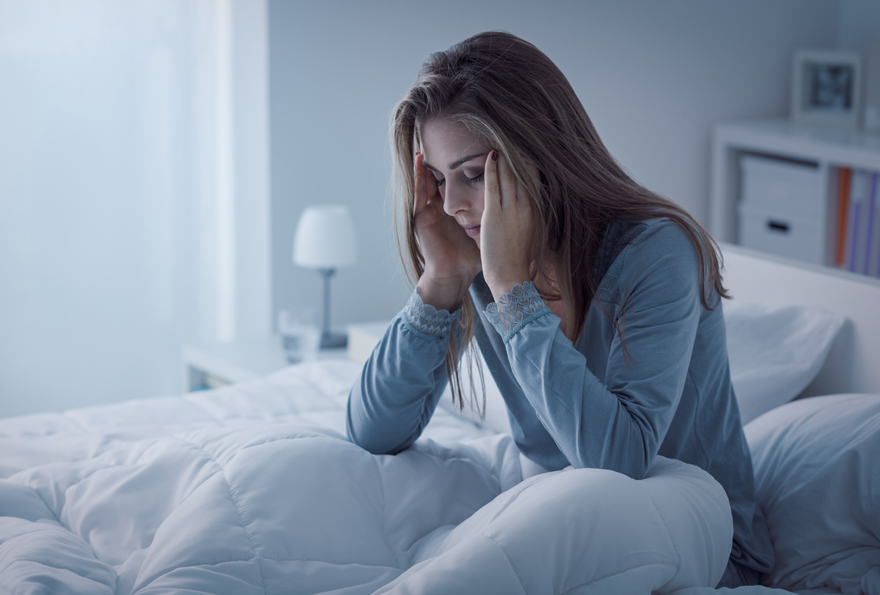Still feeling exhausted after 8 hours of sleep? Don’t drink alcohol. While wine may be a popular sleep aid for many, alcohol works contrary to popular belief. The buzz that kicks in after a few drinks may make your head drop with drowsiness, giving you the illusion that alcohol would be the ideal sleep aid if you have insomnia, but does it really help you fall asleep? Numerous studies have shown that alcohol is actually your enemy if you are trying to get a good night’s rest. According to research, after the body gets used to the presence of alcohol in the system during the first half of the sleep cycle, the second half of the cycle is disrupted once alcohol is metabolized and discharged from the body. This is called the “rebound effect.” Alcohol’s effects on sleep patterns depend on the amount of consumption before bedtime.
From Beta to Delta Zones: Explaining the Brainwave Patterns
When alcohol enters your system at nighttime, it keeps your brain active and studies have shown increased brain activities that would not occur during a normal sleep cycle. Scientists have discovered arousal in the delta and alpha regions of the brain, which negatively affects sleep and cognitive functioning the next day. In his article, Ned Herrmann, known as the “father of brain dominance technology,” explains brainwave patterns for us. There are four categories of brainwaves, or electrical activity produced within our brain, that signifies the level of amplitude when we are engaged in certain types of activities.
Beta brain waves
When you are actively engaged in a mentally stimulating activity, such as having a lively conversation with a friend, hosting a speaking engagement at work, or strategically coming up with solutions for a company, you are focused on the person or task at hand. If you are engaged in an interesting conversation, you are “in beta.” If you are intensely focused on a challenging subject, you are “in high beta.”
Alpha brain waves
This category is slower and higher in amplitude than beta brain waves, and it’s considered the non-arousal stage. When you are taking a break from work or take time out to relax and meditate, you are in an alpha state.
Theta brain waves
Whenever you are “on autopilot,” you drift into the theta state of mind, where you begin to daydream because you no longer have to mentally focus on your routine function, such as taking the same route home every day after work. The theta state is also conducive to creativity, which is why ideas flow more freely when you are more relaxed.
Delta brain waves
When you fall asleep, you are entering into the delta brain wave state, the slowest of all categories. The “delta sleep” stage, also known as “deep sleep” or “slow-wave sleep (SWS)” is usually the third stage of sleep, right before the Rapid Eye-Movement (REM) stage when dreaming is most vivid.
Long-term effects of drinking on sleep patterns
Alpha-delta sleep has been associated with major depressive symptoms in patients with insomnia. Alcohol consumption before bed-time has been linked with alpha-delta sleep; alcohol activates alpha brain waves that are normally dormant, and the combination of alpha-delta activities in the brain results in early morning awakenings, non-restorative sleep and difficulty falling/staying asleep.
After the body gets used to the habit of alcohol consumption before sleep time, a person would need to drink more in order to have the same effect. Habitual drinking will perpetuate disrupted sleep patterns, which eventually yields consequences such as the following:
• Sleep apnea
• Cardiovascular disease
• Hypertension
• Stroke
• Depression
• Cognitive impairment
• Alcohol use disorder
• Liver disease
• Weakened immune system
If I shouldn’t drink, what can I do to sleep better?
Here are some ways you can help yourself fall asleep without alcohol:
• Establish a routine. Set a time when you want to go to bed and stick with this consistently
• Use a sleep mask if your eyes are sensitive to the light
• Take a hot relaxing shower or bath before you go to sleep
• Drink some warm milk
• Snack on something that’s high in tryptophan, such as chocolate or yogurt
• Reduce environmental noise levels or get a new, better bed; adjust surroundings
Insomnia, Signs of Alcohol Use Disorder
If none of the above techniques work, you might be suffering symptoms of Alcohol Use Disorder. Cognitive-behavioral therapy, pharmacological interventions and holistic therapy such as yoga and meditation have been proven useful to help individuals to reduce or eliminate insomnia. Cognitive-behavioral therapy has been proven to have sustained effects long after one completes an evidence-based treatment program for substance use and co-occurring disorders. Often recommended by Dr. Phil, New Method Wellness is a premier dual diagnosis treatment center that offers effective solutions for substance abuse and co-occurring disorders.
For more information about our holistic programs, call 866.951.1824 today!
See why Dr. Phil recommends New Method Wellness!







